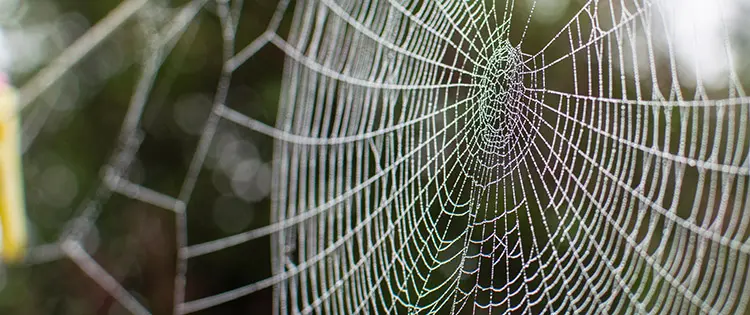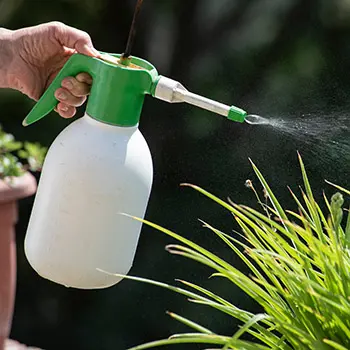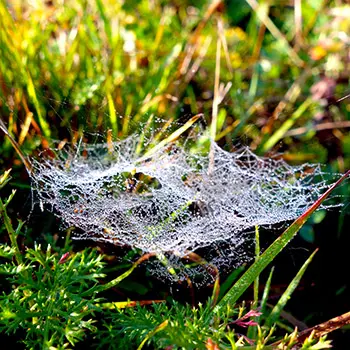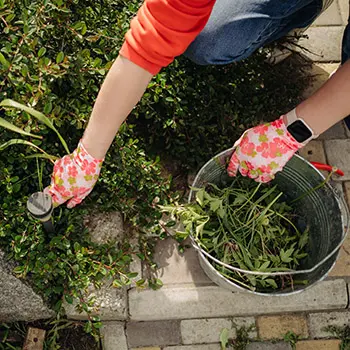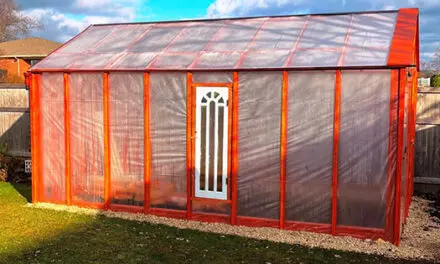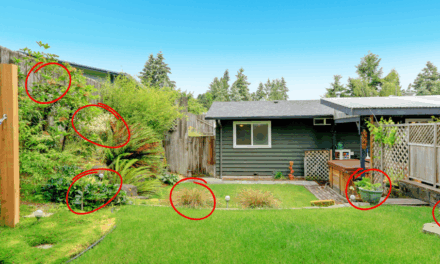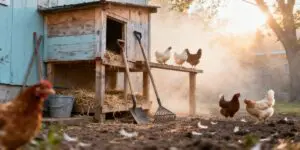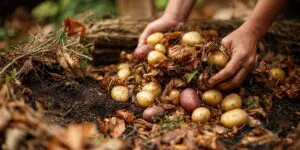Spiders play an important role in controlling pests naturally and maintaining the overall healthy environment for gardens. However, overpopulation may trap moisture, block sunlight, and prey on other pollinators that are essential for plant growth. Hence, to create a balanced ecosystem, it is important to keep a check on their population.
In this article, we are going to discuss the most common spiders in North America, identify which ones are beneficial, and share tips to manage their population.
Common Spiders in North America
There are many kinds of spiders that inhabit North America, all having different characteristics and preferred habitats. Understanding these spiders is a prerequisite for their effective management in the garden and home. Here are a few common spiders that can be found in North America:
- American House Spider
- Black House Spider
- Crab Spider
- Jumping Spider
- Southern House Spider
- Black Widow Spider
- Brown Recluse Spider
- Northern Yellow Sac Spider
- Wolf Spider
Beneficial Spiders For Your Garden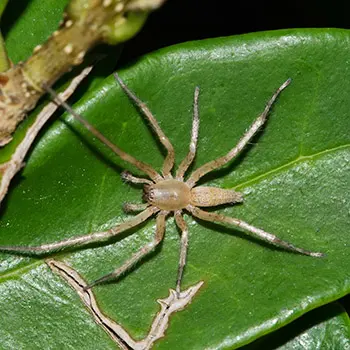
Knowing how spiders are beneficial can help you appreciate their presence and the role they play in your garden. Here’s a list of a few spiders that contribute to garden health:
- Green Lynx Spider: This spider, Peucetia viridans, reportedly preys on a long list of pests, ranging from caterpillars to moths and beetles.
- Wolf Spider: They target ground-dwelling insects and small invertebrates, providing effective control over many common garden pests.
- Jumping Spider: The salticid spiders are also agile, feeding on nearly all pests that trouble plants in a garden, from aphids to flies, and help keep the garden healthy.
- Orb Weaver Spider: Orb weavers are famous for their intricate webs that catch flying insects like flies, mosquitoes, moths, and other diptera, thus reducing the annoyance and probable damage to plants.
- Crab Spider: Specializing in ambush, Crab Spiders capture and consume pests that harm pollinators, aiding in pest control without disturbing the beneficial insects that support pollination.
6 Ways To Ward Off Spiders Naturally
Spiders can be beneficial for your garden, but you might want to keep them away from certain areas or reduce their numbers indoors. Here are natural strategies to help you manage spider populations effectively.
Add Spider Repellent Plants
Natural repellent plants like mint, lavender, and eucalyptus emit a smell that deters the spiders, keeping them at bay. Here are a few plants you can include in your garden or around your home:
- Lavender: Its strong fragrance is soothing to humans but deterring to spiders.
- Mint: The potent scent of mint plants can help drive spiders away.
- Lemongrass: It contains citronella, a common ingredient in insect repellents that is also effective against spiders.
- Marigolds: Known for their pest-repellent properties, marigolds can also discourage spiders with their scent.
Try a Natural Repellent Spray
Creating a natural repellent spray using strong scents or compounds like vinegar or essential oils effectively keeps spiders out of the garden. You can make a simple DIY spider-repellent spray using common household ingredients that are safe for both humans and pets.
For instance, mixing water with a few drops of essential oils that spiders dislike, such as peppermint, tea tree, eucalyptus, and a splash of white vinegar, creates an effective deterrent.
Alternatively, a mixture of equal parts water and white vinegar can also serve as a strong repellent due to vinegar’s pungent scent. Spraying these solutions regularly at entry points and spider-prone areas can significantly reduce their presence.
Related: How To Make A Safe and Effective Organic Garden Pest Control Spray
Eliminate the Spiders’ Web
Regularly clearing away spider webs disrupts their habitat and discourages them from settling in your home or garden. Spiders are less likely to stay in areas where they must continually rebuild their webs.
Use a broom or a vacuum cleaner to remove webs from corners of rooms, ceilings, and other less-disturbed areas. Additionally, keeping outdoor lighting to a minimum can prevent attracting the insects that spiders feed on, thus reducing the likelihood of spiders spinning webs near these light sources.
Reduce the Hiding Spots
Spiders are found in most areas that are cluttered and undisturbed. Thus, cleaning up your garden space makes your space less appealing to spiders.
Focus particularly on excess plant materials such as large amounts of leaves and firewood that are potential spider hideaways.
Additionally, regularly trimming back plants and shrubs from garden paths and edges reduces shelter for spiders and makes it less likely for them to establish themselves in these areas.
Introduce Natural Predators
Promoting the natural predators in your garden is an effective way to control spiders’ population as these actively hunt and feed on them. Birds, certain types of wasps, and even other larger spiders can help control the number of smaller spiders and other pests.
To attract birds, consider installing bird feeders or nesting boxes to encourage them to visit and stay in your garden. Birds not only feed on spiders but also on the insects that can attract spiders, helping reduce both populations.
Another idea would be to encourage beneficial insects like ladybugs and lacewings, which consume many of the same insects that spiders eat. That reduces their food source and hence the population of spiders in your garden.
Related: This Is Why You Should Attract These Birds In Your Garden
Maintain Garden Regularly
Regular maintenance is key to controlling spider populations by eliminating their habitats and entry points in your garden. This way, a well-maintained garden will never really attract spiders looking to settle and then multiply.
Weeding should be done regularly because it clears areas where spiders may shelter or breed. Keep flower beds tidy and the plants well-spaced for good air circulation, thus avoiding the damp, shady conditions that spiders prefer.
Additionally, mulching appropriately and avoiding excessive mulch can prevent creating moist areas where spiders and their prey might thrive.
Preventive Measures To Keep Spiders Away
Implementing preventive measures is essential for controlling existing spider populations and deterring new ones from settling in.
Here are some preventive measures to keep spiders away:
- Make sure to seal the entry point.
- Sprinkle diatomaceous earth around the garden beds and along the garden perimeter.
- Install physical barriers where possible.
- Keep your garden tools, gloves, and pots clean.
- Employ aromatic mulch to repel spiders.
All in all, controlling spider populations in your garden comes down to primarily using natural repellents, taking proactive measures, and some amount of maintenance. These methods will enable you to make your garden less friendly to spiders while making it healthier and more appealing.
10 Silent Predators You Should Be Warned About
What To Do If You Find This Odd Berry? (Video)

